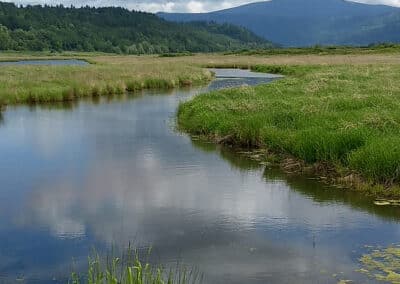Victory for Puget Sound
NWEA wins another victory for Puget Sound
Northwest Environmental Advocates’ (NWEA) persistence means another victory for Puget Sound salmon and orcas.
The U.S. Environmental Protection Agency (EPA) took an unusual step in issuing a determination on May 25, 2023 that Washington State’s water quality standards for nine toxic pollutants fail to adequately protect fish and other aquatic life. The formal determination triggers a legal requirement for EPA to put federal rules in place.
The determination is a result of a lawsuit brought by NWEA over its 2013 petition to EPA seeking the federal agency’s action to update nearly 30-year-old water quality standards in Washington State. The Clean Water Act requires that standards be updated every three years.
“Today’s action by EPA is an important step towards making sure that Puget Sound’s orcas and salmon across the State of Washington get the protection they need from toxic pollution,” said Nina Bell, NWEA Executive Director. “Unfortunately, it also represents 40 years in which EPA has failed to do its job, namely to step in and act when the state fails. An increasing number of aquatic species have marched to the brink of extinction during these decades of inaction by EPA and the Department of Ecology.”
EPA found that new or updated standards are needed for nine toxic pollutants—including acrolein, aluminum, arsenic, cadmium, copper, cyanide, mercury, nickel, and selenium—to meet the requirements of the Clean Water Act.
EPA largely relied on formal opinions prepared a decade ago by the National Marine Fisheries Service and U.S. Fish and Wildlife Service pertaining to water quality standards in Oregon and Idaho. In those states, acting under court order, the federal fish and wildlife agencies found that EPA’s allowable toxic pollution levels jeopardize threatened and endangered species.
NWEA’s most recent victory for Puget Sound was made possible through legal representation by Lia Comerford of the Earthrise Law Center at Lewis & Clark Law School (Portland) and Bryan Telegin of Telegin Law (Seattle).

Court Wins for Puget Sound & Columbia River

Stopping Tacoma from Harming Puget Sound Chinook Salmon

